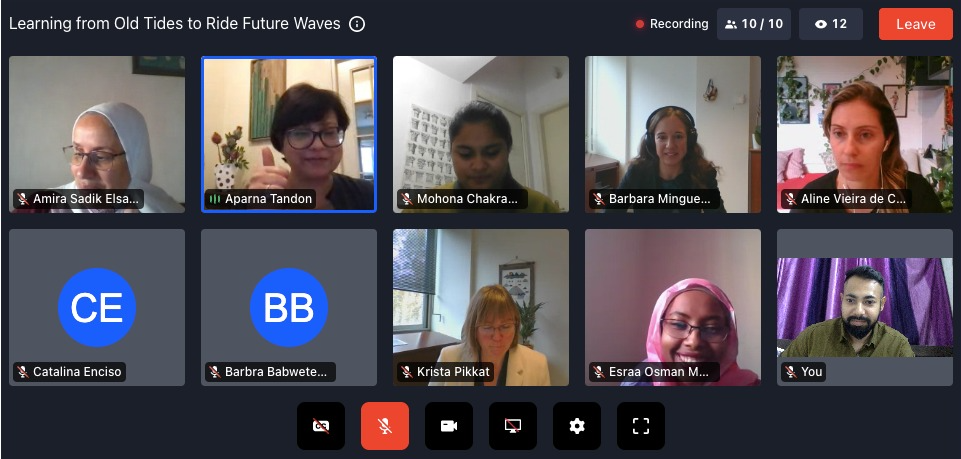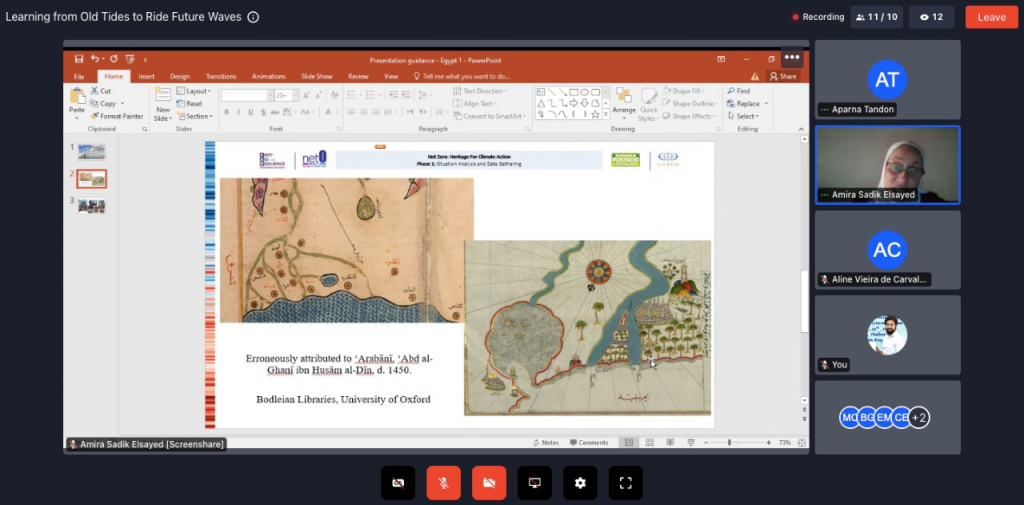Learning from old tides to ride future waves
In times of unpredictable and intensifying hydro-meteorological and climatological hazards, it is crucial to look back on how humans have historically coped with and adapted to climate variability and sustained natural resources.
Net Zero: Heritage for Climate Action is a first-of-its-kind initiative that aims to use Indigenous knowledge to develop integrated strategies for disaster risk reduction, climate action and peacebuilding at five climate hotspots, which will be the project's innovation sites.
To develop actionable climate solutions for on-the-ground implementation, multidisciplinary teams at each site conduct empirical research by tapping into community-held knowledge and cross-linking datasets across fields to assess climate risks to people and heritage.
One of Net Zero’s principal aims is to involve key United Nations agencies and decision makers to fast-track heritage-based climate action and advance the goal of net zero emissions. Building on this idea, ICCROM-FAR joined forces with UNESCO and CRRP, India to hold a panel discussion – Learning from old tides to ride future waves – on 30 November at the Understanding Risk Global Forum (UR22) to highlight Net Zero’s efforts.

Two First Aid and Resilience for Cultural Heritage in Times of Crisis (FAC) course alumni – Bárbara Mínguez García, Assistant Project Officer, Emergency Preparedness and Response Unit/Culture and Emergencies, UNESCO, and Repaul Kanji, Co-Founder, Confederation of Risk Reduction Professionals (CRRP) – spearheaded this initiative in collaboration with the ICCROM-FAR team.
Krista Pikkat, Director, Culture and Emergencies Entity, Culture Sector, UNESCO, Paris, commenced the session with opening remarks on the importance of tapping into traditional knowledge to protect heritage from the adverse impacts of climate change. Mohona Chakraburtty, Programme Assistant, First Aid and Resilience for Cultural Heritage in Times of Crisis (FAR), ICCROM, introduced Net Zero, highlighting its relevance and urgency. The session panellists included representatives from Net Zero’s five innovation sites in Brazil, Egypt, Iran, Sudan and Uganda.
.png)
Aline Vieira de Carvalho, Coordinator, Laboratory of Public Archaeology (Lab/Nepam/Unicamp) and Committee of Climate Change and Heritage, Brazil, shared her team’s research centering on the Quilombolas’ Indigenous knowledge to enhance crop diversity and food security and how it can help reduce disaster risk and adapt to a changing climate.
Representing the team from Egypt, Amira Sadik Aly, Executive Manager, Egyptian Heritage Rescue Foundation (EHRF), discussed some of the worst impacts of climate change, including sea level rise at the World Heritage City of Rosetta and the local community. She underscored heritage's capacities to reduce disaster risk and promote resilience.

Ameneh Karimian, Consultant and Project Leader, Natural Disasters Research Institute, Iran, represented a women-led team sharing the feasibility of reviving the ancient water management system, Qanat, to mitigate increasing water scarcity.
Aiming to control riverbank erosion and improve biodiversity in the Rwenzori Mountains and park area, Uganda, Barbra Babweteera Mutambi, Executive Director, Cross-Cultural Foundation of Uganda, shared the importance of the traditional flood mitigation knowledge held by the Bokonzo community and how involving them can foster long-term peace and resilience.
Esraa O. Elgadi, Project Manager, Sudan Urban Development Think-Tank (SUDTT), highlighted her team’s research on the traditional community-based early warning system of Taya, which could prove efficient and sustainable in the face of climate change and rapid urbanization.
The session concluded with remarks from Aparna Tandon, Senior Programme Leader, First Aid and Resilience for Cultural Heritage in Times of Crisis (FAR), ICCROM. Summarizing the panel discussion, Aparna highlighted the role culture could play in mitigating greenhouse gases, enhancing preparedness, helping communities cope with loss and damage, and facilitating peaceful and just transitions. She also addressed the importance of involving key stakeholders and government agencies to mainstream culture-based climate action in national policies.
The panel fostered cross-disciplinary, intergenerational discussions among more than 130 experts and young professionals worldwide. It introduced a fresh perspective on innovative culture-based solutions that can help assess and reduce climate-induced disaster and conflict risks in diverse contexts.
By sharing their experiences from the Net Zero project at UR22, panellists advocated for incorporating culture in climate policies and sustainable planning of cities and human settlements.
